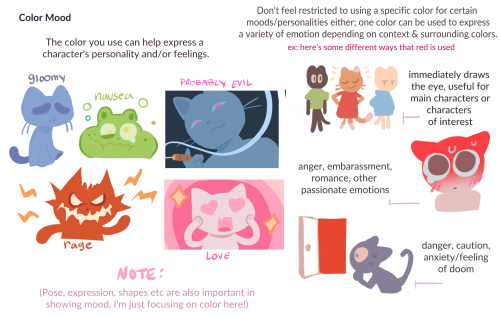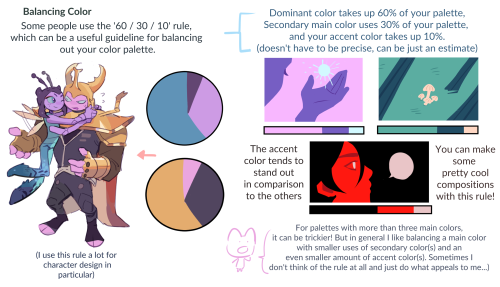While It Is True That Photons Have No Mass, It Is Also True That We See Light Bend Around Sources With

While it is true that photons have no mass, it is also true that we see light bend around sources with high mass due to gravity. This is not because the mass pulls on the photons directly, but instead because the mass warps the space-time through which the photons travel. Imagine a bowling ball on a mattress. The ball is a massive object — say, the Sun — and the mattress represents space-time, in which it sits. (Of course, space-time is four-dimensional, but it’s a bit harder to imagine that!) When you place the bowling ball on the mattress, it deforms the surface. If a grid were drawn on the mattress, you would see the grid deform, so the straight lines of the boxes were no longer straight. The same is true for a star sitting in space-time — the star deforms space-time around it, causing it to curve toward the star. Now imagine a marble; this represents a photon. If you roll the marble in a straight line on the mattress and it comes too close to the bowling ball, the marble will curve because the mattress it’s traveling on dips and curves around the bowling ball. This is what happens to light traveling through space: When it comes too close to a massive object, it encounters warped space-time and curves not because it’s being pulled by gravity, but because the space-time it’s traveling through is curved, so its “straight” path becomes a curved, bent one.
. . Keep Supporting and Following us . 👉👉👉👉 @unrevealedfiles 👉👉👉👉 @unrevealedfiles 👉👉👉👉 @unrevealedfiles 👉👉👉👉 @unrevealedfiles 👉👉👉👉 @unrevealedfiles . 𝒇𝒐𝒓 𝒎𝒐𝒓𝒆 𝒇𝒂𝒔𝒄𝒊𝒏𝒂𝒕𝒊𝒏𝒈 𝒔𝒄𝒊𝒆𝒏𝒄𝒆 𝒂𝒏𝒅 𝒕𝒆𝒄𝒉𝒏𝒐𝒍𝒐𝒈𝒚 .
More Posts from Donutdomain and Others
Your writing will always feel awkward to you, because you wrote it.
Your plot twists will always feel predictable, because you created them.
Your stories will always feel a bit boring to you, because you read them a million times.
They won't feel like that for your reader.
Pink Robin Bird

The pink robin is a small passerine bird native to southeastern Australia.

Its natural habitats are cool temperate forests of far southeastern Australia.

Like many brightly coloured robins it is sexually dimorphic.

Measuring 5.3 in in length, the robin has a small, thin, black bill, and dark brown eyes and legs.

The male has a distinctive white forehead spot and pink breast, with grey-black upperparts, wings and tail. The belly is white.

Its range is the forests of southern Victoria and neighbouring parts of South Australia and New South Wales, and Tasmania.

Pink Robin Bird
Writing Tips
Descriptions in Between Dialogue
✧
⤠ how characters interact with the environment
⇝ moving something, picking something up, looking somewhere
⤠ how the environment interacts with the characters
⇝ weather, other character’s actions or movements
⤠ gestures
⇝ facial expressions, body language
⤠ shifts in position
⇝ standing, sitting, leaning, shifting weight, crossing arms/legs
⤠ physical reactions
⇝ body temperature, fidgeting, heart rate, character quirks
⤠ environmental descriptions
⇝ descriptions using the five senses, setting, character’s appearances
⤠ internal dialogue
⇝ emotional reaction to what was said, reflection of past experiences, connections to other characters/settings/actions
➵ I want to reiterate… descriptions using the five senses ; when in doubt, think of the five senses your character is experiencing and pick what best moves the story forward
Art Tips for Vibrant Lighting
Some tips and tricks for getting glowy, beautiful, vibrant lighting effects…especially in traditional art, with no ctrl+z! The example piece is a watercolor work in progress of mine and, if you’re familiar with watercolor, you know it’s super unforgiving. What you put down stays!
Tip 1: Create a thumbnail

Do a very loose, messy sketch of your illustration. This helps define the composition, but it can also help you pick where your light is coming from and what colors you’ll use for it. This way, you can reference the light source and colors while you’re painting!
Even if you’re working digitally, this creates a great color key you can turn back to. You can make a thumbnail digitally or traditionally.
This thumbnail only took about 20 minutes…and it’s saved so many headaches during the painting process.
When you have a thumbnail, the rest of your painting is just a translation of those colors with a better technique.
Tips:
Feel free to make many thumbnails! This is the easiest step to revise and repeat.
Use a photo for inspiration for your color scheme. I used clouds in the evening as color references.
Play around with layers and effects (like overlay, multiply). This can help you figure out new colors that you can then try to capture traditionally!
Tip 2: Don’t forget about your lines!

Line art is important for gradients! I did mine first, so I had to consider the glow effect too. It’s a bit blurry (as its a screenshot from a reel, lol), but you can see yellows to dark browns and blacks. This established the glow from the start!
Tips:
Consider using a media you can get gradients in. I used acryla gouache here, but ink, watercolor, and even markers can work well!
If it’s hard to visualize highlights in line art, do the lines after with pen or paint! Adding shadows and highlights that way can be easier.
Tip 3: Start with big gradients first

Once you have your sketch on paper finished, start with large gradients! This helps define your light source and keep your whole composition making sense.
Here, I started with the background sky, then added in the shadow coming off the wing before doing anything else. Take note of how helpful the thumbnail was in helping me lay this all out, too!
Tip 4: Think warm to cool

See how both the hair and wings move from warm (yellow/browns) to cool colors (blues, payne’s grey)? This is a surefire way to keep the strong light source and make it look like the light is glowing!
Tips:
This is all about keeping the colors close to your light source, so if your light source is cool (like the moon), your highlights are cool and your shadows are warm tones. The key is just to keep it consistent!
Lighting isn’t just light to dark gradients. It’s also warm to cool/cool to warm!
Think about all the spots the light catches (like that one front feather on the left top). It takes a lot of thinking through, but it’ll make a huge impact! (Remember, you can always revisit your thumbnail or add more details in there)
Don’t forget about reflected light, bouncing off another surface. It’ll be more subtle than the main light source, but still there!

Final Tips:
Love those gradients! Watercolor is meant for beautiful gradients, so use multiple colors for a glow. The feathers in the light go from yellow ochre to prussian blue to payne’s grey.
Start with the highlights first, then work into the shadows! Above, the skin isn’t even painted with shadows yet, because I wanted to get the lighting first.
This is just a WIP right now, but I hope these tips help! If you want to follow, I’ll be posting more progress pics (and the finished illustration soon too). :D
My: Instagram | Twitter




my color tips pdf is now available ! i had a lot of fun with this, i hope you enjoy ^^
BUY HERE or HERE

Herschel’s view of new stars and molecular clouds by europeanspaceagency
-
 illuminfae-ix reblogged this · 2 years ago
illuminfae-ix reblogged this · 2 years ago -
 illuminfae-ix liked this · 2 years ago
illuminfae-ix liked this · 2 years ago -
 donutdomain reblogged this · 2 years ago
donutdomain reblogged this · 2 years ago -
 fairydonut549 liked this · 2 years ago
fairydonut549 liked this · 2 years ago -
 live-at-the-rainbow liked this · 3 years ago
live-at-the-rainbow liked this · 3 years ago -
 fantasticpeachdeputyknight liked this · 3 years ago
fantasticpeachdeputyknight liked this · 3 years ago -
 softboys-world liked this · 3 years ago
softboys-world liked this · 3 years ago -
 nova-is-here liked this · 3 years ago
nova-is-here liked this · 3 years ago -
 junietuesday liked this · 3 years ago
junietuesday liked this · 3 years ago -
 sxpernova liked this · 3 years ago
sxpernova liked this · 3 years ago -
 b0nkkd-blog liked this · 3 years ago
b0nkkd-blog liked this · 3 years ago -
 unrevealedfiles reblogged this · 3 years ago
unrevealedfiles reblogged this · 3 years ago

I just reblog fun facts/tipsScience, nature, geology facts etc! + art & writing tips!
67 posts



